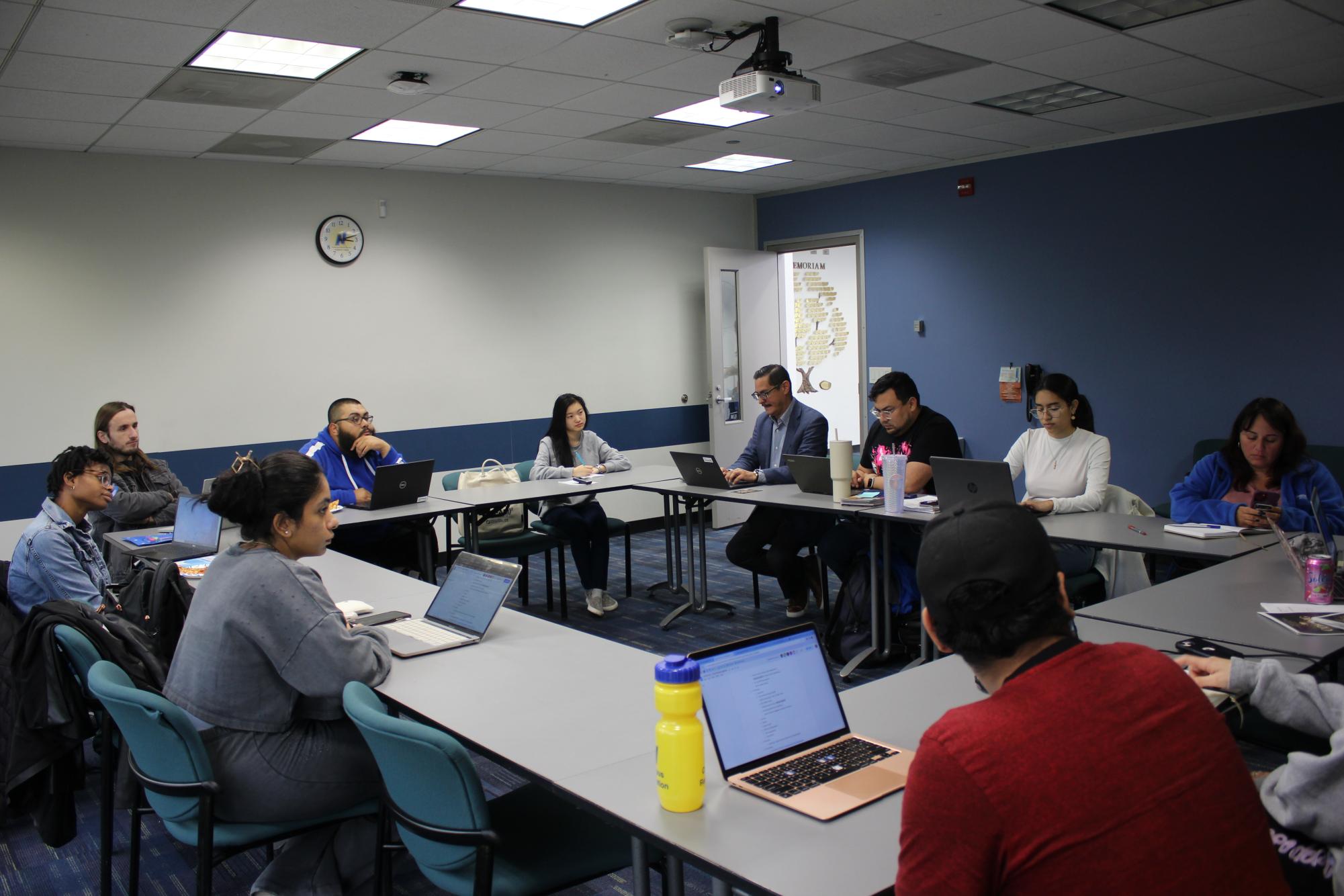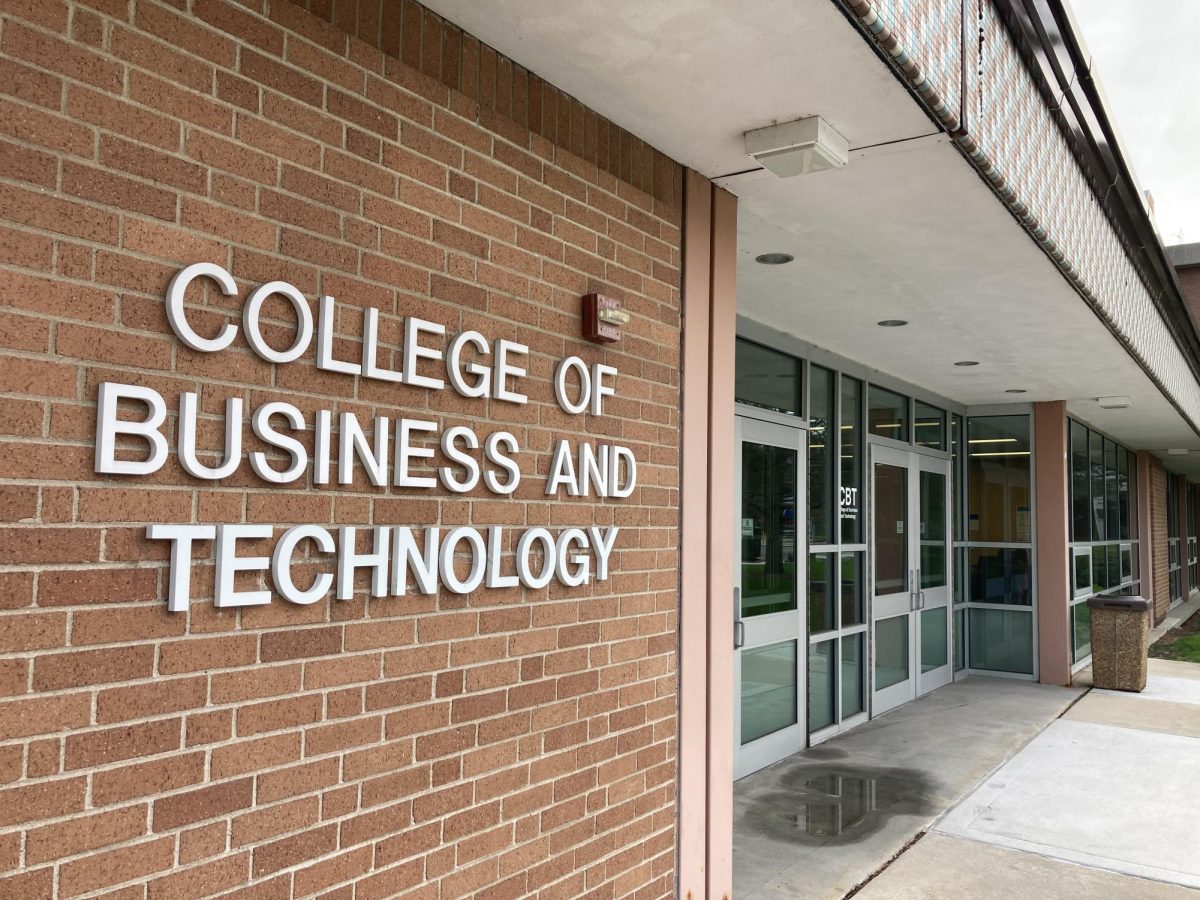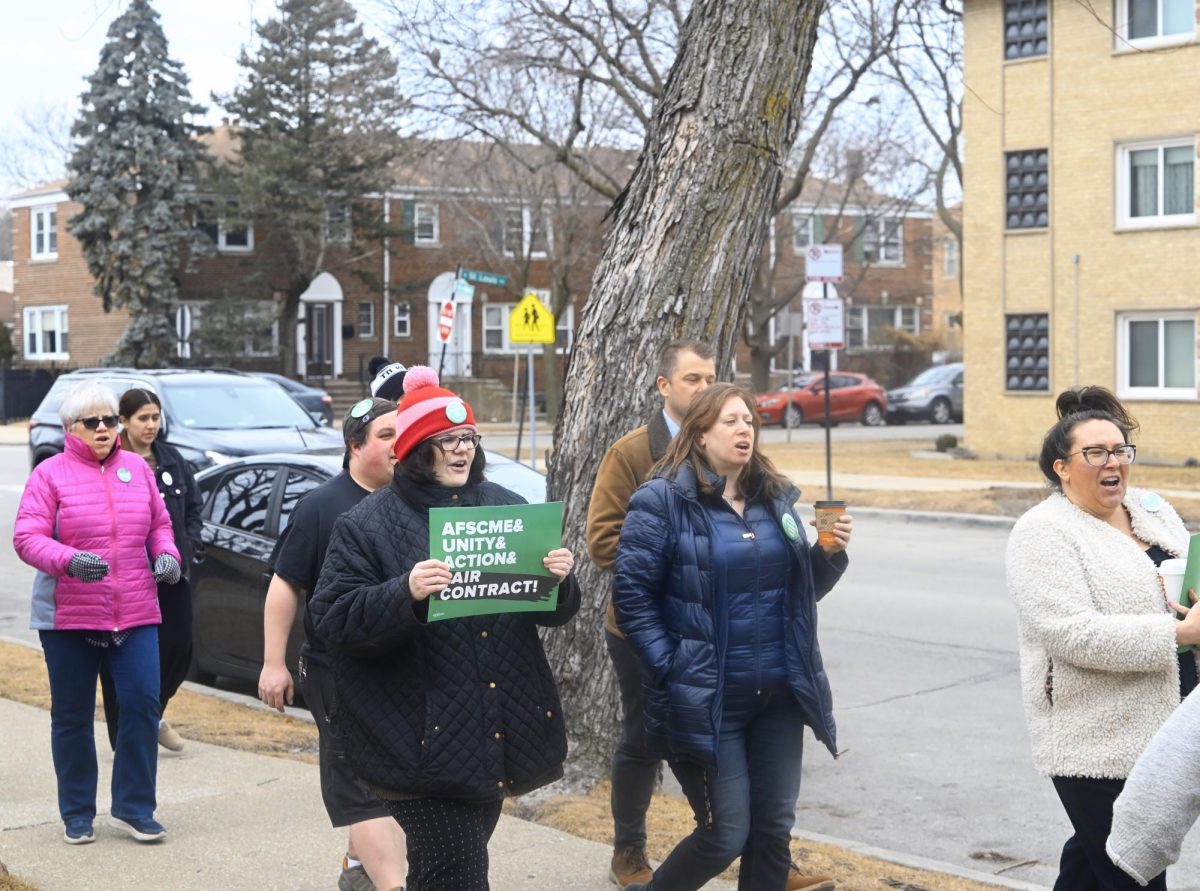Student Government Association (SGA) is one of NEIU’s shared governance organizations, run by students (and an advisor) to represent the student body at large on issues concerning the well-being and logistics of student life.
During their meeting on Tuesday, Oct. 10, 2023, the SGA discussed–and passed several resolutions, including a stance on the potential tuition increase for fiscal year 2025, no-penalty mental health days, and old business regarding explanations for sudden salary increases–and salary disparities–among staff.
Justin Krieg, Interim Executive Director for University Budgets, was invited back to clarify remaining questions regarding the tuition increase in the Fiscal Year 2025 (FY25) budget proposal, which he previously presented to SGA.
The plan for FY25 was presented to the Finance, Buildings and Grounds Committee which, according to Krieg, “essentially tabled the proposal…They wanted us to bring in additional information about the anticipated expense increases that would likely need to be covered before they were willing to…think about whether or not the tuition and fee increase was needed to help cover those costs.” The committee resurfaced the proposal on October 23, the outcomes of which the Independent has reported on.
One concern was how the increased tuition would be distributed among general student fees, and what the additional funds would go towards. Per a shared document with the current breakdown, $1,000,200 “represents essentially…negotiated increases in salary for each year.” $800,000 of that is “non negotiated…about what the…raise for each of the employees would be.”
In response, Student Trustee Edwin Medina requested a breakdown by individual position for the past five years, to which VP Schumacher additionally specified for “a category breakdown with the number of individuals that fall under [each] category.”
Krieg noted it would take a bit of time to put the report together, due to “a delay in some of the increases coming in…[resulting in] some differences that exist between our budgeted [salaries] and the current posted salaries for employees.” That is, reconciliation work currently remains for FY25, but a transparent account regarding tuition distribution seems not too out of reach.
On the note of finance, the first of three resolutions was introduced.
- The first resolution, sponsored by SGA President Maggie Sabanagic and co-sponsored by Student Trustee Edwin Medina and SGA Vice President EJ Schumacher, opposed the proposed Fiscal Year 2025 (FY25) tuition increase. Following the reading of the resolution out loud, SGA advisor and Director of Student Leadership Development, Veronica Rodriguez called for a pro-con cycle, a formal process in which “someone should speak for it, [and] someone should speak against [it], even if you don’t [agree] just to get the ideas out there.”
Senator Mikulas Koudelka said, “The overwhelming majority of students that I’ve talked to about this feel opposed to a fee increase. This, you know, I’m not surprised.” He continued, “Anytime a fee increases, anything from tuition to ethics, people are almost overwhelmingly opposed, even if it can be explained to them how they stand to benefit from paying more.”
VP Schumacher nodded aggressively in agreement.
“When they do increases…from the information that I have…it’s never to improve anything,” Medina went on, “It’s to maintain the status quo. So they won’t let go of someone. So someone can keep their job.”
President Sabanagic added, “If you’re going to be paying more, something has to get better. I’m not sure what.”
“It shouldn’t be put on students’ backs…to make sure that we’re increasing our retention rate, or … increase our enrollment… At the end of the day, we pay to be here.” Medina went on, “Everyone who works here gets paid to be here. So they have a responsibility, not only to use the best of the dollar amount that they receive from tuition–from the state–to make sure that they’re functioning well and…have…strategies to fix this mess.”
Using salary information for the 2021-2022 school year, Medina compared the salaries of three staff members whose salaries ranged from a $20,000 to $60,000 increase in just one year to three other staff members (from the same department) whose salaries increased by a much lesser rate–and in the case of one, actually dipped. He said, “I was trying to see if that was…all across the board.” And evidently, they were not.
Medina acknowledged there were other factors to take into consideration, “If we’re looking at equitable pay for people on campus…it’s not fair. It’s not fair that you, who manages the financial aspect of the university, if you are covering your people and not looking at the rest of the university, then you do not have that fiscal responsibility to the students. You do not. You’re not here to make sure that that money is being spent where it needs to be spent. And this…this makes me think, this is why you are trying to make money.”
Senator Koudelka echoed Medina’s sentiments, asking everyone on board to consider “a 60% increase on a salary of $60,000. Is that justified?”

The resolution passed unanimously. Following procedure, the resolution will be received by Dr. Terry Mena, the Vice President of Student Affairs, who will send it to Dr. Katrina Bell-Jordan, Interim President.
- The second resolution, sponsored by VP Schumacher and co-sponsored by President Sabanagic and Senator Joanne Fanfan, advocated for Illinois to mandate five mental health days per year for all university students statewide.
Following the reading, Schumacher said, “There was a law passed in Illinois that gives K-12 students five mental health days per academic year without a doctor’s note that does not take university students into consideration.” They also credited Illinois State University with doing something similar, and the passing of this resolution would mean an alliance across Illinois universities to request action from the state.
Trustee Medina expressed concern about faculty contracts requiring a specific number of teaching days. Medina went on, “So that means students have to be okay with extending how long the semester took place. So along with having those five days, it’s like, okay, so we need to add a week to the semester, or whatever the case is.”
Another concern brought up by Schumacher was how the absence of attendance would affect grading, which members agreed should be left to the state to work out.
Trustee Medina reported working with Dr. Bell-Jordan on the reissue of a “Fall Break.” He introduced it as a way to include mental health, but a more fixed break; a Spring break in the fall. “The last update that I got from President Jordan is that she’s going to be working with the registrar because the registrar’s responsible for making sure that those days are fixed into the calendar.” The fall break and the mental health breaks would not conflict with each other.
This resolution was also passed unanimously.
- Due to time constraints, the third resolution–concerning livestreaming future SGA meetings for the public–was postponed for the next meeting.
Executive reports:
Trustee Medina updated SGA on the Presidential Search Committee. While Medina was not able to disclose the timeline, he reported that the Committee has met with the hiring agency AGB Search and is actively in the search process.
President Sabanagic appointed Senator Mikulas Koudelka as the student representative to the Faculty Council on Student Affairs. VP Mena–who was also present in the meeting–explained that each division of the University (Student Affairs, Finance and Administration, University Advancement, Enrollment Management) is represented by an advisory council, which is established by the governing groups every year.
The SGA meets in Student Union Room SU 215 at 3 p.m. on Tuesdays (bi-weekly). Meetings are open to the public.




